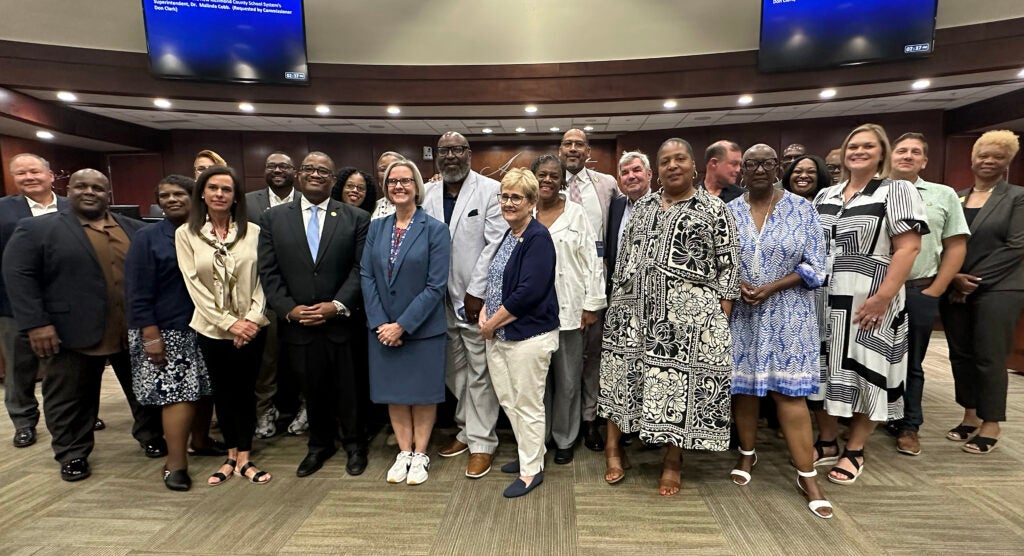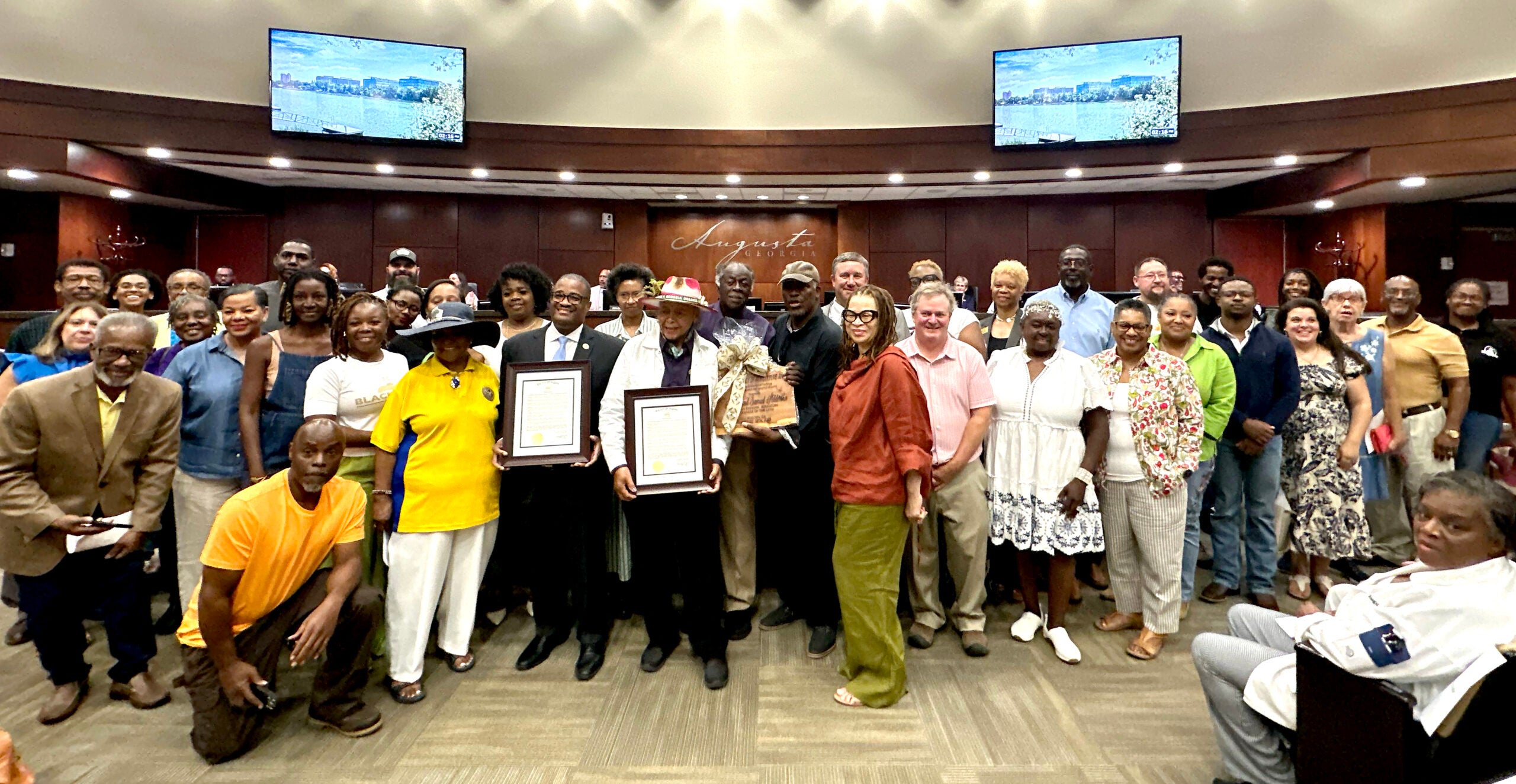The Augusta Commission voted Tuesday to adopt the “rollback” property tax rate and cover an $11 million shortfall with reserves. The 10-1 vote, with Interim Commissioner Tanya Barnhill-Turnley opposed, spares many property owners a tax hike unless their property values rose.
Reassessments and new development added about $309 million to the tax digest this year, according to a presentation from Interim Finance Director Tim Schroer. The vote set the countywide rollback millage at 6.227 mills, with an additional 3.40 mills in the urban services district. Both are lowered using a 5.595-mill local option sales tax credit and are safely below Augusta’s tax cap, according to Schroer.
The millage is used to calculate property tax bills by multiplying it against the number of thousands in a property’s taxable value. The rollback rate is the rate that will generate the same amount of revenue as last year.
MORE: School District cuts the ribbon on new North Columbia Elementary
Fees and school taxes rising
The move comes as taxpayers face higher garbage and streetlight fees approved last week, along with a Richmond County school tax increase to 18.74 mills that will generate about $7.4 million in new revenue. The increases are set to appear on next month’s tax bills.
Commissioner Brandon Garrett reminded residents that Augusta taxes remain lower than school taxes.
“Their news doesn’t make quite as big of news as what we do here on Tuesday afternoon,” he said.
Schroer noted the countywide maintenance and operations millage is about a third of the countywide school rate.
MORE: Board of Commissioners approves contract for PAC Support Facility
Causes of the shortfall
Mayor Pro Tem Wayne Guilfoyle pressed to revisit the reasons for the shortfall. Schroer cited:
- $3.5 million of $6.5 million refunded to the U.S. Treasury which Treasury attributed to a missed deadline, with another $2.2 million penalty expected.
- $1.4 million in law enforcement overages.
- $7.8 million in over-budget active employee healthcare costs, up from $1 million last year.
Augusta, which is self-insured, had several large claims this year, he said. Employees currently pay about 22% of healthcare costs and higher contributions and policy changes may be needed, he said.
On the refund, Housing and Community Development Director Hawthorne Welcher, who later resigned, was unable to produce all the unspent funds, he has said.
The city re-hired auditing firm, Cherry Bekaert Advisory LLC to conduct a “grant compliance” audit to look at whether HCD spends grant funds appropriately.
Schroer said staff met with the auditors last week and they’d almost completed “most of their evaluations.” Now, “we’re directing them on specific areas to look,” he said.
MORE: Columbia County Board of Elections approves resolution for District 2 race
Using reserves
Guilfoyle moved to use reserves to cover the shortfall and was seconded by Garrett.
“In my heart, I don’t believe that the taxpayers should be paying for this reimbursement,” Guilfoyle said. “The healthcare is just a onetime hit and law enforcement, we’re going to take care of law enforcement. Come next month, we’re going to have to start making hard decisions.”
If hurricane recovery reimbursements arrive as expected, reserves will stand at $58 million, still below the $80 million required by city policy.
Commissioner Don Clark said the decision was one of several “hard decisions” to come. “We’re going to have to tighten our belts in some areas,” he said. Commissioner Catherine Smith Rice emphasized, “This commissioner is not voting for a raise in property taxes.”
Other revenue issues
Commissioner Stacy Pulliam asked Schroer what other cities are doing to keep up with inflated costs for goods and services.
Schroer said Augusta has already implemented most of them, except for imposing excise taxes. In addition, In addition he said Augusta offers “very lucrative tax abatements” for industries that come here.
These include a five-year property tax abatement for companies that make capital improvements of $1 million or more and a five-year abatement for companies that make improvements valued at $100,000 or more.
Diamond Lakes water park revived
The commission voted 11-0 to revive the Diamond Lakes water park project, allocated $5 million in SPLOST 8. Garrett called for Destination Augusta’s help in finding a private partner, similar to its role with the downtown zipline and climbing tower project.
Commissioner Francine Scott said abandoning the project would be a “disservice” to voters. Clark supported the plan provided the city doesn’t operate the park. Destination Augusta President Bennish Brown said he would work with Administrator Tameka Allen quickly and “heard loud and clear that this shouldn’t be hanging out very long.”
Development authority appointments
The commission also made several appointments to the Augusta Economic Development Authority:
- Reappointed Gregory Hill, 11-0.
- Reappointed former Commissioner Corey Johnson, 10-1 with Pulliam opposed.
- Reappointed former Mayor Deke Copenhaver, 9-1 with commissioner Tony Lewis voting no and Pulliam not present.
- Appointed businesswoman Melanie Taylor, 9-2 with Scott and Commissioner Jordan Johnson voting no.
A motion from Garrett to reappoint former Richmond County Tax Commissioner Steven Kendrick to the AEDA board failed 5-5, with Guilfoyle abstaining, which left Kendrick without six votes.
Rice, Barnhill-Turnley, Clark, Commissioner Tina Slendak and Mayor Garnett Johnson voted no.
Kendrick narrowly lost a runoff for mayor to Johnson in 2022 and is challenging him for the post next year.












